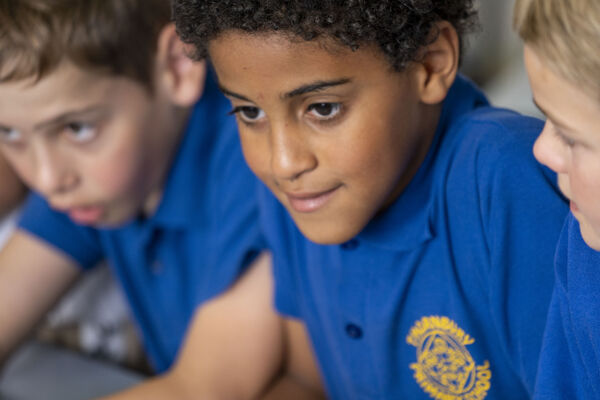Overview
Alignment with Be You Domains
-
Mentally Healthy Communities
-
Family Partnerships
-
Learning Resilience
-
Early Support
Alignment with Australian Curriculum
- Health and PE
Target audience
- Primary school
- Secondary school
Target groups
- Individual
- Small group
Program delivery
There are a variety of Secret Agent Society (SAS) resources available in two formats: 1. The SAS Small Group Program is capped at a maximum of 3 to 4 children per facilitator. 2. The SAS Computer Game Pack provides 12-month access to multi-level gamified learning for one user. There is an optional E-Telligence Pack (cards, stickers and card holders) available to complement both formats. The Program is delivered online via a software package that provides separate access to children, parents, teachers and SAS facilitators.Aims
The Secret Agent Society's suite of espionage-themed resources aims to build children's resilience, support children's goals for themselves and empower them to communicate their needs. The programs use clinician-led, digitised choose-your-own adventure-style missions and a step-by-step problem-solving formula to support children to develop meaningful and diverse skill sets.Program theory
The program uses cognitive behavioural therapy (CBT) strategies and acceptance and commitment therapy (ACT) techniques. SAS also draws on principles of learning and behaviour change. Child development literature has also informed the age-relevant step-by-step guidelines for the social skills explored in the program, while also supporting neurodivergent-affirming approaches (for example, steps for talking and playing with others).Topics
The program supports children to recognise emotions in themselves and others, express their feelings in respectful and helpful ways, cope with feelings of anger and anxiety, communicate and play with others, cope with transitions and challenges, build and maintain friendships, solve social problems, prevent and manage bullying and teasing, and acknowledge personal strengths.Cost
Program structure
The Secret Agent Society Small Group Program offers 9 modules (plus 2 booster sessions) that support children, parents and teachers. The Program consists of small group child sessions (club meetings), parent group meetings, and educator information sessions and tip sheets. Learn more at www.secretagentsociety.com/sas-optionsInstructor
- External facilitator
- Psychologist
- Educator
- Wellbeing leader
Instructor training
After meeting the eligibility criteria, professionals learn to deliver the program in a 14-hour self-paced online SAS Facilitator Training Course. Learn more at https://www.secretagentsociety.com/professional-trainingSupporting resources or materials available with program
- Manual
- Online webinars
Other materials
The following resources are also available via the Secret Agent Society Facilitator Dashboard on the online platform: Pre-prepared session content, progressive assessment processes, ongoing access for providers to training content, demonstration videos, simulation activities and program implementation resources.Ongoing support
Ongoing software user support, organisational planning support, and clinical program implementation support as needed.Parent involvement
- Attend information sessions
- Follow-up information provided after program
- Homework
- Written information provided to parents
- Online resources
Origin of program
Australia
Social Science Translated
Program authors
Dr Renae Beaumont
Ratings
Summary of evidence factors
This is a summary of the evaluation or research study characteristics that contribute to the program’s evidence rating.
|
Positive impact on at least one outcome for children and/or young people?
The study reported positive outcomes. |
Yes |
|---|---|
|
Link between program description and theory of change
Theory of change refers to whether there was a comprehensive description and illustration of how and why a desired change is expected to happen in a particular context. |
Comprehensive |
|
Study design
Type of study design reported. |
Randomised control trial |
|
Independence
The degree to which the program authors were involved in the research. |
Completely |
Summary of implementation factors
This is a summary of the program’s characteristics that contribute to its implementation rating.
|
Feedback sought from participants
Participants enjoyed the program and understood its benefits. |
Yes |
|---|---|
|
Feedback sought from instructors
Instructors enjoyed the program and understood its benefits. |
Yes |
|
Groups program is not suitable for
Groups the program wouldn't be suitable for or that required further research to determine suitability. |
Assessed and reported |
|
Training provided during study
The model of training provided. |
Face to face, all instructors, in person |
|
Ongoing instructor support provided during study
Whether ongoing support is provided. |
Yes |
Context
This is a summary of the context in which the evidence for the program was established.
|
Study Participants
Pre school, primary school (Foundation to Year 6), secondary school (Years 7 to 12). |
Primary school Secondary school |
|---|---|
|
Country of Study/s
The location in which the evidence or research was conducted. |
Australia |
|
Location of Study/s in Australia
The state (or states) the program was assessed in Australia. |
NSW QLD |
|
Evaluation of program in culturally and linguistically diverse populations
Provider has included culturally and linguistically diverse people when assessing the program. |
Yes |
|
Evaluation of program in Aboriginal and Torres Strait Islander children and young people
Provider has included Aboriginal and Torres Strait Islander peoples when assessing the program. |
No |
|
Evaluation of program in low socioeconomic groups
Program has evaluated a diverse socio-economic population in their research. |
No |
|
Developmental based adaptations to program design and delivery
Shorter sessions for younger students or activities are adjusted for age appropriateness. |
Yes |
|
Evaluation of program in children and young people with disability and/or learning difference
Provider has included participants with a disability or learning difference when assessing the program. |
Yes |
Last updated: 1 March 2023
